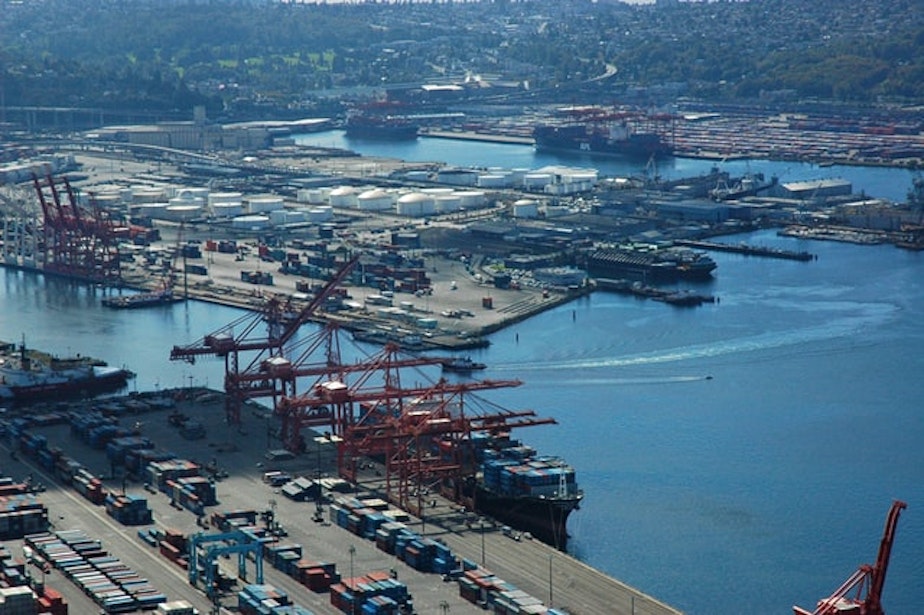Dockworkers reach tentative deal with West Coast ports, averting strike

The organizations representing dockworkers and ports along the West Coast reached a tentative agreement Thursday after months of tense negotiations.
Acting U.S. Secretary of Labor Julie Su stepped in to help broker the deal and avoid a looming strike that could have severely disrupted the supply chain.
The International Longshore and Warehouse Union (ILWU) and Pacific Maritime Association (PMA) announced the agreement in a joint press release. If ratified, the contract will cover all 29 West Coast Ports for the next six years.
“We are pleased to have reached an agreement that recognizes the heroic efforts and personal sacrifices of the ILWU workforce in keeping our ports operating,” said PMA President James McKenna and ILWU President Willie Adams in the joint statement. “We are also pleased to turn our full attention back to the operation of the West Coast Ports.”
ILWU declined KUOW's interview request, but provided details on next steps.
Local chapters of the union will send delegates to a contract caucus to review the agreement and make a recommendation to rank and file members. Those workers will then vote on the tentative deal. The union said the ratification process can take a few months.
Sponsored
Adams said, "time at the bargaining table was well spent and that the agreement represents the hard work of our rank and file and the sacrifices they made during the pandemic," in a statement shared with KUOW.
PMA did not respond to requests for interviews.
Both groups said in the statement they will not be providing further details about the agreement.
Longshore workers have been negotiating with the ports since their contract expired last July. The dispute grew heated in recent weeks, with the PMA accusing the union of grinding port operations in Seattle and beyond to a halt through work stoppages. The ILWU denied those claims.
Sponsored
The deal applies to the 22,000 longshoremen who are essential to moving container ships through the Ports of Seattle and Tacoma, as well as crucial ports throughout California.
Su said in a statement that the agreement shows “once again that collective bargaining — though sometimes difficult — works.”




